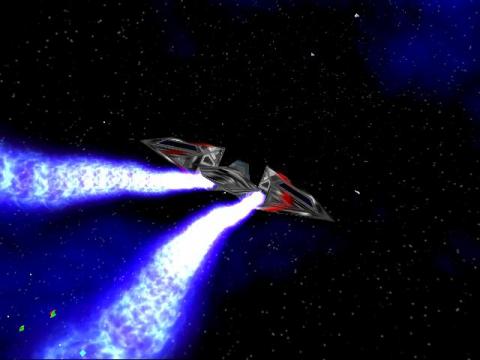News
Congratulations to all who successfully participated.
General Information
Topics
This course gives insights into the field of realtime rendering as used in virtual reality applications or computer games. Topics include:
- Graphics Hardware (GPU) Architecture
- Optimization
- Advanced Lighting and Shading
- Shading Languages
- Graphics Programming (OpenGL 4.x Core Profile, Vulkan, DirectX, ...)
- Real-time Shadows
- Culling and Visibility
- Levels of Detail and Terrain Rendering
- Image-based Rendering
Lectures and Revision Course
Please mind the following dates:
| Wed, 02.10.2019 |
15:15 - 16:45 |
First lecture and introduction to the lab course in Seminarraum 186 |
| Every Wed, 09.10.2019-22.01.2020 |
15:15 - 16:45 |
Lecture unless otherwise stated or holiday, Seminarraum 186 No lectures on: 30.10.2019, 27.11.2019, 18.12.2019, 15.01.2019 |
| Wed, 13.11.2019 |
15:15 - 17:15 |
Revision Course, Seminarraum 186 |
Lab Course
Please mind the following deadlines for the lab course. All submissions are to be done via TUWEL
| Wed, 16.10.2019 |
23:55 |
Submission 0: Project Proposal and Group Finding (see Lab Course and TUWEL) |
| Mon, 25.11.2019 |
23:55 |
1st Submission: Prototype (see Lab Course and TUWEL) |
| Mon, 20.01.2020 |
23:55 |
2nd Submission: Final rendering demo (see Lab Course and TUWEL) |
| Wed, 29.01.2020 |
15:15 - 19:00 |
Presentation of the rendering demos (compulsory attendance) |
Modus
The course consists of 10-15 lectures and a lab part in which a small rendering demo with effects from the lecture should be implemented in groups of two (more information see below).
Grading
The final grade is a combination of the lab part and an oral exam. The lab part ends with the final presentations in the last lecture (There's no need to prepare slides, just run your demo and talk about the effects you've implemented and how you did it. The demo should be started and presented within 2-3 minutes.) Oral exams will be held after the end of the lectures and serve also as a submission talk for the lab part. The grades for both, lab part and exam, are given after the exam.
Oral Exams
Dates for the oral exams will be offered in February 2020.
Material
The main materials are the slides from the lectures. The latest slides and video recordings of the lectures will be uploaded to TUWEL regularly after the lectures.
Already available on TUWEL are lecture video recordings and slides from previous years.
The book "Real-Time Rendering, Fourth Edition", by Tomas Akenine-Möller, Eric Haines, Naty Hoffman, Angelo Pesce, Michal Iwanichi, and Sébastien Hillaire, A K Peters/CRC Press, 2018, may serve as complementary material.
A good resource for GLSL shader development is the book "OpenGL 4 Shading Language Cookbook, Third Edition", by David Wolff, Packt Publishing, 2018
Further helpful links and materials can be found here.
Communication
All important information will be announced through TISS. Please make sure to subscribe to the lecture there.
The TUWEL forum will be used for discussions (and group finding) and will be monitored by tutors. If you have questions or problems with the lab part, this is the best place to ask.
In case of problems with TISS or TUWEL and for personal matters, please send us an email to: rtr@cg.tuwien.ac.at
Lab Course
The goal of the lab course is to write a small rendering demo. The implementation is done in groups of two and should at least show two effects covered by the lecture. Creativity will be rewarded.
To see what we expect from a demo have a look at the Hall of Fame where all submissions of the previous years are shown.
The implemented effects can exceed/extend what is shown in the lectures. But make sure to check for prior work, there is already a large variety of different shaders available. You should choose a topic where at least parts of the effect have to be implemented by yourself. Please make sure to always state all references that were used. The effects should be proposed in the 0th submission and you will get feedback about your choice. All further requirements and restrictions can be found in the task descriptions on TUWEL.
Registration
The registration for the lab part is done via the TISS course 186.140. Please register there under "Course Registration". After registering, the TUWEL course can be accessed.
TUWEL will be available starting from October 2nd, 2019.
Everyone who submits a project proposal will get a grade!
Submission
All submissions are done through the TUWEL course. The submission guidelines are stated for each submission in TUWEL Make sure to read and follow them thoroughly!
Make sure that your submission works on our PCs in Vislab (Those PCs' configurations and usage instructions can be found on TUWEL).
Double-check that you submit all DLLs, shaders, textures, 3D-models and additional content in the correct folders. We can only grade demos that are running on our environment.
